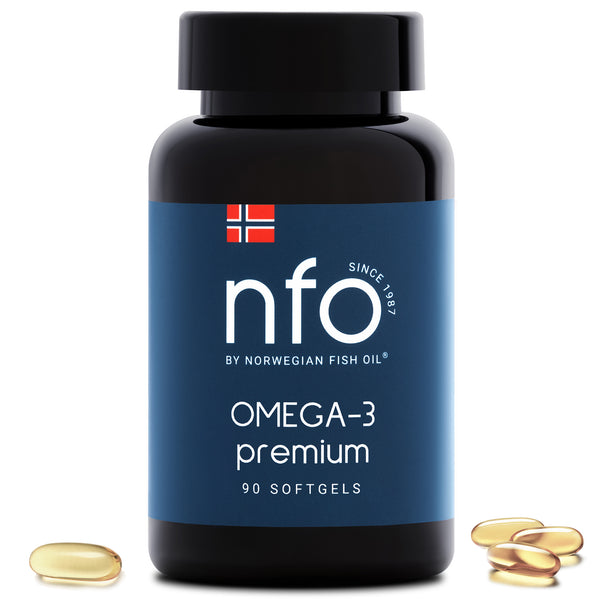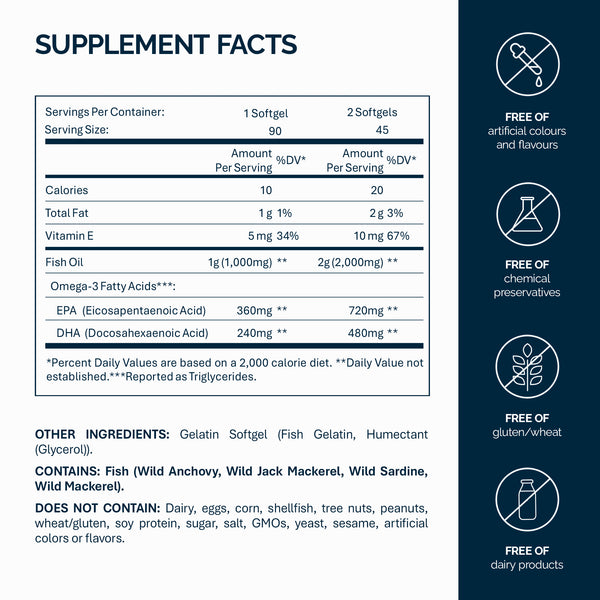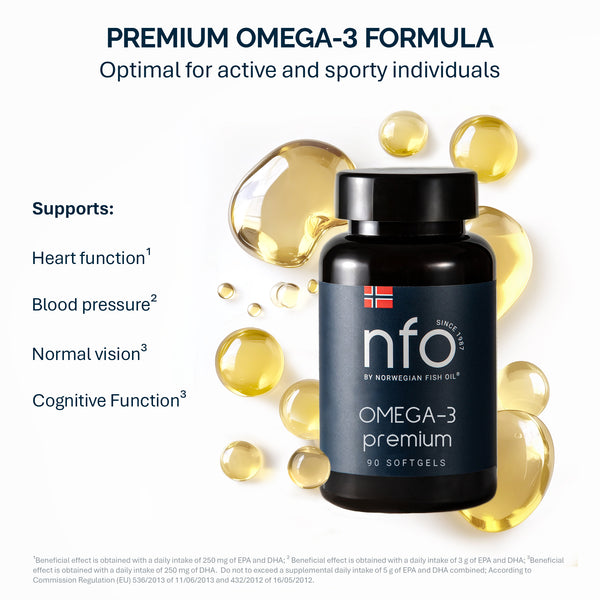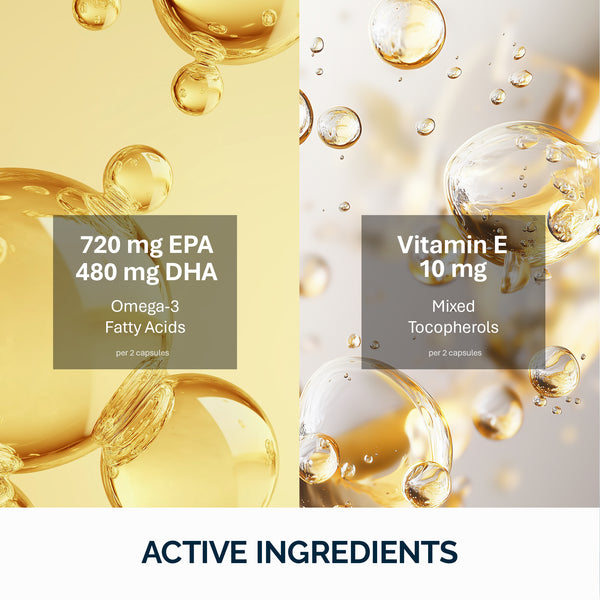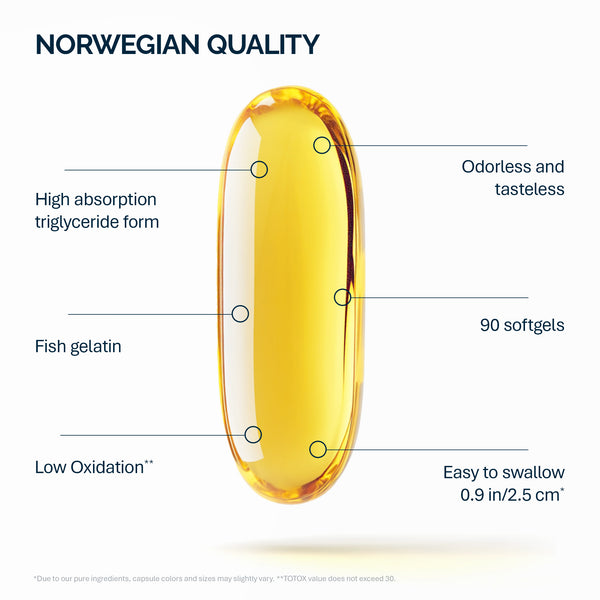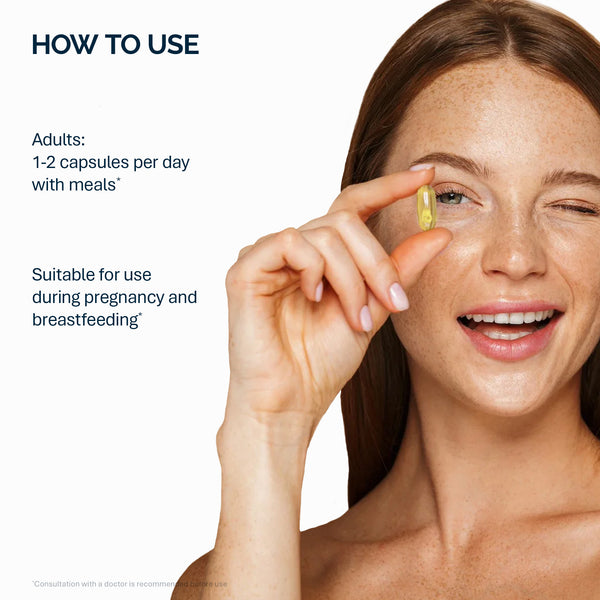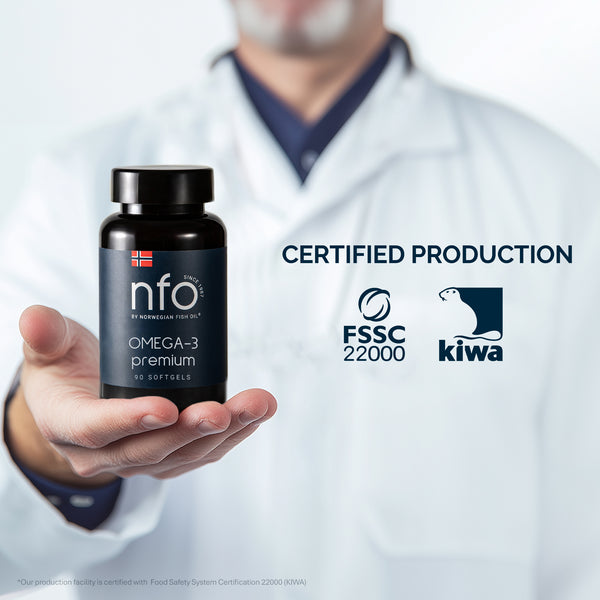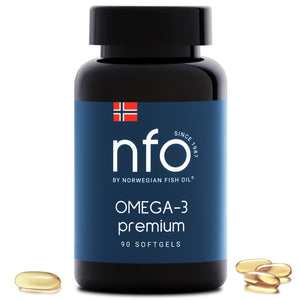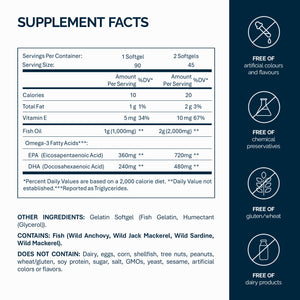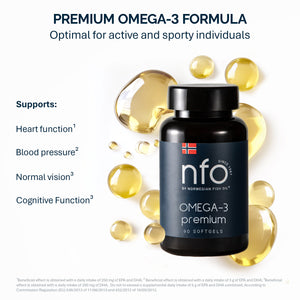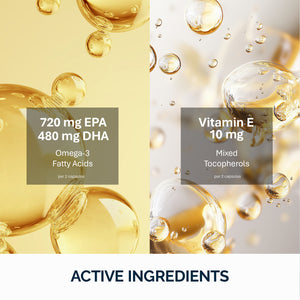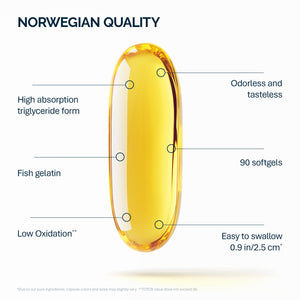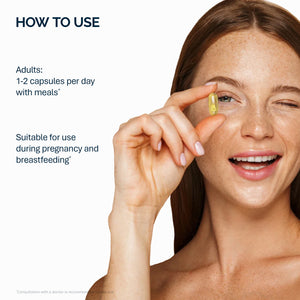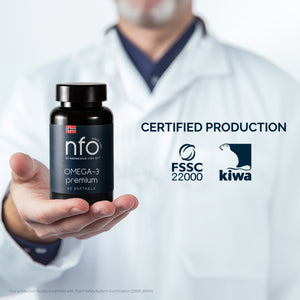Triglyceride
Omega-3 Premium
Omega-3 Premium = hochdosierter Treibstoff für Gehirn & Herz. Mit 360 mg EPA + 240 mg DHA in jeder Kapsel sorgt es für Fokus auf dem nächsten Niveau und Unterstützung für Herz und Kreislauf.
- Gemacht für Sportler, die eine gesunde Entzündungsreaktion unterstützen wollen.
- 60% Anteil an EPA + DHA
- Natürliche Triglyceride (TG-Form) für beste Bioverfügbarkeit
- Geringe Oxidation: TOTOX < 9
- Fischgelatine-Kapsel — geeignet für Pescetarier

Versand innerhalb von 24 Stunden
Geld-zurück-Garantie

Nur Wildfisch

Prüfung durch unabhängige Stellen
Kostenloser EU-Versand bei Bestellungen über 60 €
VORTEILE
Wie nimmt man das Supplement ein?
ZUTATEN
Was es tut
Ist Omega-3 Premium das Richtige für mich?
ANALYSENZERTIFIKAT
